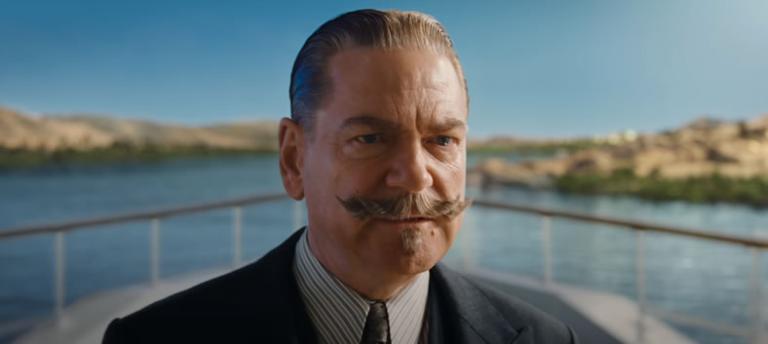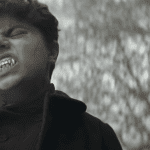
Linnet Ridgeway-Doyle is hosting a honeymoon cruise up the Nile for all her closest friends. She can afford it, of course: She’s rich, beautiful and deliriously in love.
Too bad most of her guests might want to kill her.
Tops on the list: Jacqueline de Bellefort, former lover of Linnet’s new husband. Linnet (Gal Gadot) snatched Simon Doyle (Armie Hammer) away from Jacqueline just six weeks before. Perhaps no one should be surprised that the betrayal still stings, but Jacqueline (Emma Mackey) is taking her bitterness to new heights.
Ever since Simon and Linnet paired up, Jacqueline’s been stalking them—crashing the wedding, invading the party and now, planting herself in the middle of the honeymoon cruise. She’s determined to make the couple’s days as uncomfortable as possible. And man, is it working.
But Hercule Poirot, perhaps Europe’s most famous detective, is aboard the Nile cruiser, too. Linnet tried to hire him as a bodyguard—a job that Poirot (Kenneth Branagh) refused. But he does gently take Jacqueline aside and encourage her to give up this vindictive quest she’s on and move on with her life. Jacqueline might not have the life she imagined, Poirot admits. But perhaps, it “may be the one God intended.”
It’s perhaps the only overt reference to the Almighty we hear in Death on the Nile, Branagh’s latest adaptation of an Agatha Christy murder mystery. And yet, some would insist that the mystery genre itself contains a whiff of the divine. Death on the Nile is about how in the midst of lies and deception, truth can still be found. From chaos, order; from sin, justice.
Rough Waters
It’s weird to think of murder being a catalyst for some sort of cosmic lesson. Death is almost always messy, and murder particularly so. It’s brutal and horrible, and we see hints of those horrors (albeit through a stylish Edwardian lens) in Death on the Nile. Linnet herself is murdered—shot to death in her sleep. More corpses pile up before the boat reaches its final destination. What goes on aboard the pleasure boat Karnak isn’t just a crime: It’s an affront to God, a dismantling of His design. It’s an illustration of the law of entropy, where order inherently devolves; evidence of a cold, amoral universe.
But then in sweeps Poirot, a man who, judging from his conversation with Jacqueline, apparently believes in God’s design. Just as he tells Jacqueline that perhaps she can have the life that God intended, so it is with him. He was supposed to be a farmer, he reveals in the film: Instead, Poirot was given this life—not the one he had wanted, but one that God placed before him, and one that perhaps allows him to be an instrument in the Lord’s own truth-loving hand.
Writing for The Paris Review, crime novelist (and Christian) P.D. James said that in murder mysteries, the detective is “like the avenging deity of an old Morality Play.” And while Poirot is no god here, he does come across as an angel of justice, full of wrath and wielding his tongue like a sword. Out of Death on the Nile’s cacophony of crimes and lies, Poirot brings out notes of truth. Bit by bit, clue by clue, he strings together a sense of order from the mess: Whodunit, how and why.
Dorothy Sayers, another mystery writer and noted Christian (she was a member of the Inklings, the writing group frequented by C.S. Lewis and J.R.R. Tolkien), found the murder mystery to be a deeply moral form of storytelling. “Each story begins in chaos, a dead body, and the entire story moves toward justice and the restoration of order,” writes Angelina Stanford of Sayers for the Circe Institute. “In a modern world that increasingly denies that there is any order or any real virtues like truth and justice, the detective story creates a longing in us for the very things that our culture rebels against.”
And indeed, Poirot’s final confrontation with the passengers feels like a tiny echo of Genesis 1:2: Before the revelations, the setting seems a place without form, where darkness rules over the face of the deep. (Indeed, many a clue was tossed overboard into that deep.) But over the waters, Poirot brings light—revealing the truth, exposing the lies, bringing at least the possibility of justice.
Smooth Sailing
It seems only fitting that Poirot offers such understanding and grace toward Jacqueline at the beginning of the film. It follows, in an odd sort of way, the rhythm of the New Testament. After all, it’s not just the killer aboard the Karnak that brings chaos. We all do, in our own ways. We, like Jacqueline, can be consumed by our own rage and bitterness. We, like many other passengers aboard the Karnak, can feel the tug of temptation or hatred that can lead us so astray. But through Jesus, we’re given an out—an option to move in a better direction. We can let go of all that gunk and reject our own selfish desires. We can become the people that God wants us to be. The one, in Poirot’s words, that God intended.
But if we turn away from that hand … the Bible, like Poirot, tells us a dire, inescapable truth. Justice will come for us all. And one way or another, God’s order will be restored.













